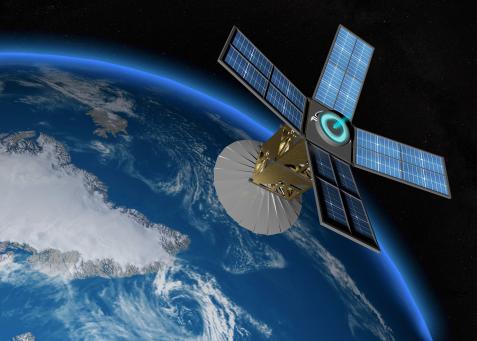© istock
The Spanish government wants to enable the use of space for satellites and provide the necessary radio spectrum for this type of communication. For example, Spain aims to become a new reference point for companies interested in space travel, such as Houston and Cape Canaveral in the United States.

Spain as a data center
“One of the goals of the National Recovery Plan is to strengthen cross-border digital infrastructures that will turn Spain into a data centre,” said Roberto Sanchez, Minister of State for Economic Affairs and Digital Transformation at El Economista. This also includes satellite infrastructures for which a new segment, called “NewSpace”, has been created.
Newsspace
NewSpace is an umbrella term for a global industry of private companies and entrepreneurs targeting the commercial market for innovative products or services developed in or for space. Aerospace companies such as SpaceX, Virgin Orbit and Rocket Lab are seen as NewSpace companies.
The rise of nanosatellites
The satellite sector continues to develop at a rapid pace. New technologies make it possible to build smaller satellites that are more flexible and cheaper than conventional satellites. New nanosatellites, which are about the size of a milk carton, could be launched faster and placed in low geostationary orbits. This new generation of small satellites can be used, among other things, in Earth observation, space research, the Internet, and communications.
According to sources from the State Secretariat for Digitization, the nano-satellite sector has achieved a sales volume of more than 319 million euros in 2020, and it is expected that the turnover will reach about 950 thousand million euros over the next 20 years.
“More and more Spanish companies want to be part of this emerging sector,” which is “highly innovative with huge potential to contribute to sustainable growth and create high-quality jobs.”
Increase satellites in space
“At the end of 2020, there were about 3,372 satellites in orbit around the Earth. Of these, 1,819 were used specifically for communications,” Foreign Minister Sánchez emphasized in a Spanish opinion piece titled “The New Frontier of Communications: Outer Space.” In the coming years, “we can expect equipment to explode into space, bringing swarms of small satellites into low orbits against large and expensive conventional satellites in geostationary orbits far from Earth.”
Europe is lagging behind
At the moment, the United States, China and Russia are ahead of the rest of the world in developing new satellites. Europe does not have an answer to this yet. Only Luxembourg opens its doors wide to aspiring entrepreneurs with a unique legislation on the use of raw materials from space.
Digital Europe 2023
However, Europe does not stand idly by. In March of this year, the European Commission presented Digital Compass 2030: The European Approach to the Digital Decade. This plan outlines the vision and strategy for Europe’s digital transformation until 2030. One of the key solutions, Sanchez says, is to strengthen Europe’s digital autonomy through a satellite communications infrastructure that allows data to be transmitted securely and quickly.

“Total coffee specialist. Hardcore reader. Incurable music scholar. Web guru. Freelance troublemaker. Problem solver. Travel trailblazer.”






More Stories
“Ask at least one question in return.”
Elbendamers in the Sun: What a Wonderful Little Village
European Space Agency – Space for Kids